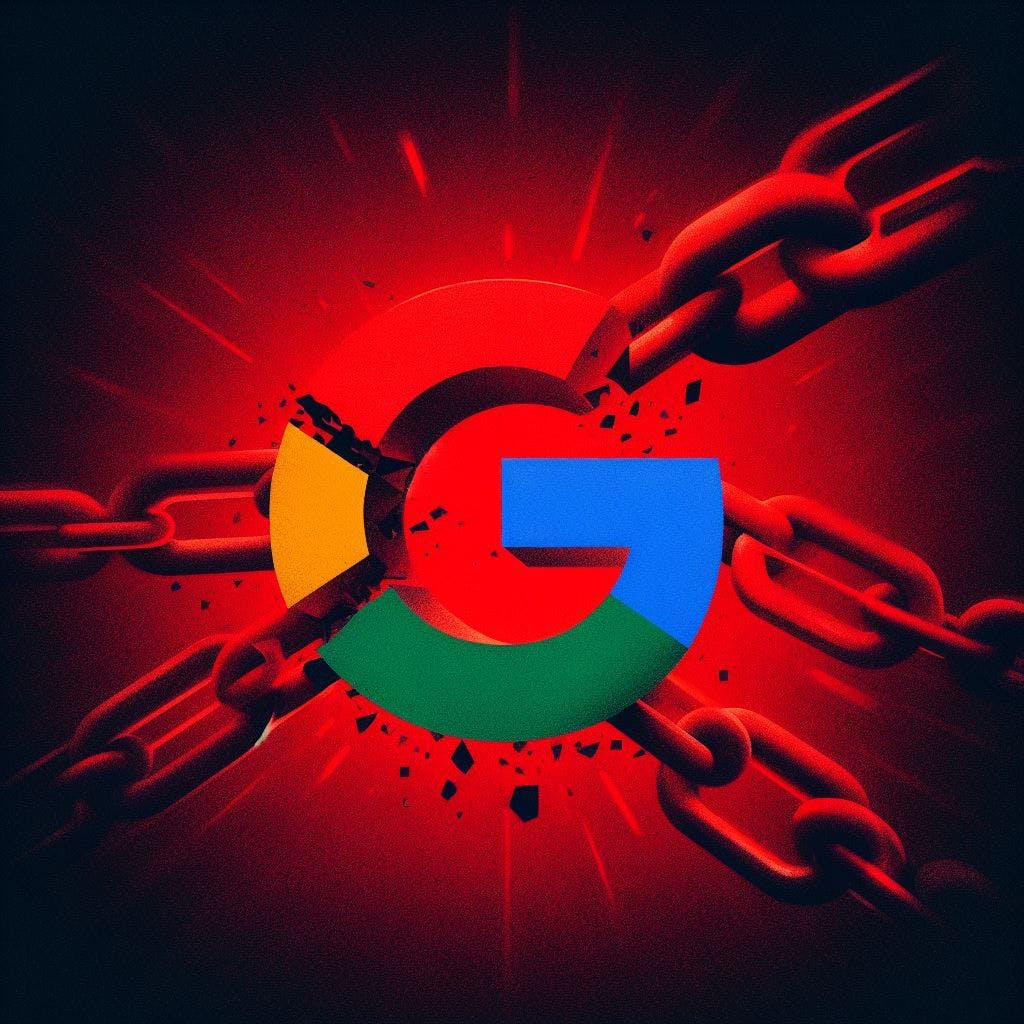Backlinks, or links from one website to another, have served as a crucial ranking signal since the ascent of search engines in the late 90s. While they are no longer the only signal used by Google to determine how to rank search results, they continue to remain important.
However, the problem with using backlinks as a ranking factor is that the system can easily be manipulated. By throwing money around, it's easy to acquire links even from some of the most authoritative websites in the world. The art of manipulating the search engine (termed ‘optimization’ to not sound mischievous) is an
While Google is
The rise of Large Language Modelling (LLM) and the amount of user data in Google’s possession should be enough for it to retire this ranking signal for good. Backlinks are a relic of the past, and it's time to rank content based on merit and relevance to the search intent of the user.
Image Source: Ahrefs
History of Backlinks as a Ranking Factor: A 25-Year-Old Tech That Doesn’t Die!
In 1996, Sergey Brin and Larry Page, founders of Google, developed the idea of ‘PageRank’. The core principle of PageRank was fairly simple. It would determine a website’s authority based on how other websites link to it. This approach was a departure from the then-prevalent practice of
PageRank would shape the future of search engines and establish Google’s monopoly in the market that we see today. This search engine monopoly has
During Google’s initial run, the more backlinks a website had, the better it ranked on the Search Engine Results Pages (SERPs). Over time, the algorithm evolved, placing greater emphasis on link quality and relevance. Google's algorithmic updates also began accounting for factors like site experience, user behavior, content freshness, and how a piece of content “fits within the whole context of the web”.
Yet, even after all of these developments, backlinks continue to remain a critical signal for ranking search results, 25 years later. While the web has evolved drastically, this one idea, that search results should be ranked with respect to how other websites cite them, has continued to have major influence.
The Problem with Backlinks
Despite Google repeatedly claiming that backlinks are not as important as they used to be, there are hundreds of examples that prove otherwise. Here are some of them:
- Brian Dean, founder of Backlinko,
increased traffic by 110% using link building . (Published in 2022) - Ahrefs ranked a
‘Stats’ page at #1 by building backlinks . (Published in 2020) - Chris from Sirlinksalot ranked a keyword with backlinks alone to make
traffic jump from 160 to 4000 a month . (Published in 2022) - An
aggregated list of case studies from SEO chatter.
Wait, these studies are from SEO companies. Isn’t it like__Coca Cola sponsoring scientific research__ to show sugar is not bad for you?
Yes, but most people in digital marketing are aware of the fact that backlinks are still being bought and sold in 2023, and they indeed have an impact. Good content and user experience remain essential, but backlinks play a crucial role in achieving higher rankings.
Every website that has good
I am not blaming anyone for being involved in these practices. Google has fostered a culture where you either pay your way into the SERPs or pay them for advertising. Simply creating good content is not sufficient. Consequently, many aiming for organic search traffic resort to these tactics as failing to do so could lead to someone else taking their place. It's a bit like
Can Websites Be Efficiently Ranked Without Backlinks?
Tech has improved significantly since backlinks were first used as a ranking signal. And, as of now, they are just one signal among many but they continue to be crucial.
With the rapid advancements in AI technology, coupled with the vast user data that Google amasses, there's a valid argument for eliminating reliance on backlinks. The potential lies in using AI to assess content quality, align search results with user intent, and incorporate user engagement metrics for refined search results.
If you submit an article to ChatGPT and ask it to critique your article and assess its relevance for a specific keyword, the tool will do a very good job at highlighting the strengths, weaknesses, and areas for improvement. Granted, ChatGPT is prone to
It is a penguin
Over time, the potential of AI to not only scrutinize content but also compare all the search results with each other and find the best matches to address the intent behind a search term. The search engine already takes hundreds of signals into consideration for ranking content and a focus on identifying quality content should be at the forefront.
A glance at today's search results reveals a pattern: many articles seem like rehashed versions of others. Barely a few websites create inspired, high-value content. Most just "spray and pray," creating content as if they were growing paddy. Many writers tasked with creating content for SEO simply read other articles and create a cocktail of all the information they gather to provide you with a 'brand new' article.
This isn't necessarily the fault of content creators or the websites they work for. When websites need to continuously churn out content and update their existing content as frequently as possible while also paying for backlinks to maintain their rankings, this is to be expected. Web search desperately needs an alternate method for analyzing the value of content.
By fusing the capabilities of LLMs in content assessment with other crucial ranking signals, such as aggregated website interaction metrics, search engines can severely reduce backlink dependency. Google tracks our data as much as they can. No reason why they can’t actually use it to improve our search experiences.
The Biggest Challenge: Determining Authority
While analyzing content and user interactions seems to be a foolproof plan, I have to admit that there’s one major hiccup in this process. If a website’s backlink profile is not taken into consideration, how does the search engine determine the authority and the legitimacy of the website?
Let’s take an example. Imagine two websites, Website A and Website B, both publishing articles on the same keyword. Both articles are equally exceptional, crafted by talented writers. However, Website A is a reputable business known for its credibility, while Website B is disseminating misleading information as part of a propaganda campaign. In this scenario, how does a search engine like Google ascertain brand authority without analyzing backlink profiles?
Even if other brand authority signals are considered, this conundrum raises important questions about the fair representation of websites in search results. Relying solely on indicators of brand authority risks monopolizing SERPs in favor of well-established brands while smaller businesses are compelled to invest heavily in advertising to compete.
So, what’s the solution? I don’t know. Perhaps this is something greater minds need to solve. It can also be argued that the website that's running propaganda can simply skip the hurdles by creating adverts and get the same results as long as they fill Google’s pockets. So, even if you are able to correctly determine brand authority, businesses with nefarious purposes will always continue to thrive.
In any case, while the solution may not be immediately apparent, it's worth considering various perspectives and potential approaches to strike the right balance.
Why Doesn’t Google Solve The Backlink Problem?
For a new business looking to dive into content marketing or a website simply wanting to share information, the barrier to entry is extremely high. SERPs are dominated by authoritative websites with years in the market, and in most cases for good reasons, as I mentioned earlier.
To establish themselves, new entrants find themselves funneling vast resources into content generation, backlink acquisition, and other SEO practices. It can take months for their content to gain visibility. To compound the challenge, maintaining rankings often requires consistent content updates and backlink building (not always, but in many cases). Neglecting either can result in a substantial drop in rankings.
So, what's the alternative? It's quite straightforward. Pay Google to display your content as advertisements. Google's annual advertising revenue reached a staggering 224.47 billion U.S. dollars in 2022.
Maybe the problem of backlinks is indeed difficult to solve, as determining authority without using backlinks is complex, or perhaps... puts on the tinfoil hat… Google doesn't want to change the status quo as doing so would jeopardize their ad revenue. You be the judge!
Summing Up
The practice of using backlinks to determine website and page authority for ranking content dates back to the inception of Google. In fact, it played a pivotal role in establishing Google as the premier search engine. However, the $80 billion SEO industry reveals that financial resources often dictate who can secure good positions on the SERPs.
While Google has claimed that backlinks are losing importance and will continue to do so, recent case studies and the sheer number of backlink requests that webmasters receive from some of the most authoritative websites on the internet prove otherwise. Paying for backlinks or publishing articles on other websites with the sole intention of acquiring backlinks is against Google's Terms of Service, but it remains a common practice that brands feel compelled to engage in to maintain their positions on the SERPs. Moreover, if you're willing to pay enough, you can acquire links from some of the biggest websites on the internet. This creates an unfair disadvantage for smaller businesses and content creators who are at a significant disadvantage when competing with larger brands.
While completely eradicating the importance of backlinks is a formidable challenge as they play a pivotal role in measuring website authority to uphold the quality and reliability of search results, Google needs to find a way to ensure that quality content truly rules the web. Recent advancements in AI and the wealth of data at Google's disposal should provide the means to address this issue. This effort would not only enhance the user experience but also enable small businesses and content creators to gain more visibility.
This is undoubtedly a complex problem that Google should be addressing, unless they believe that doing so would cannibalize their ad revenue.


